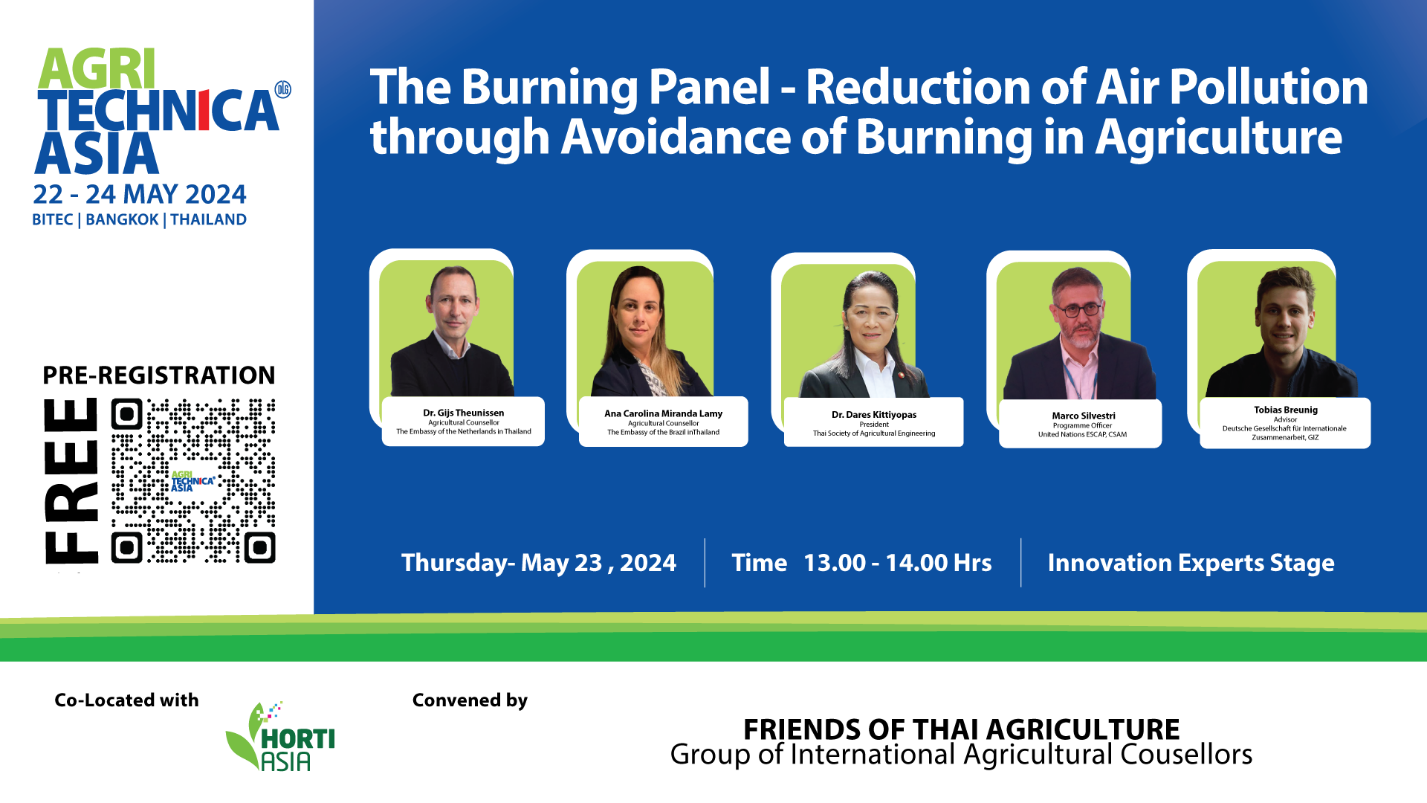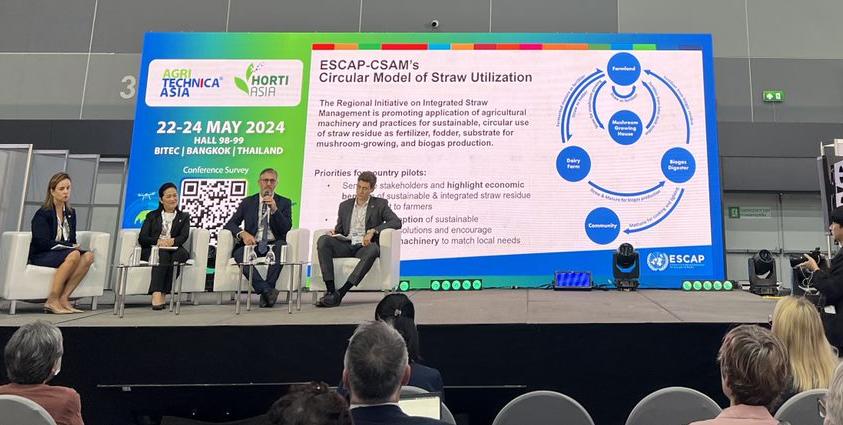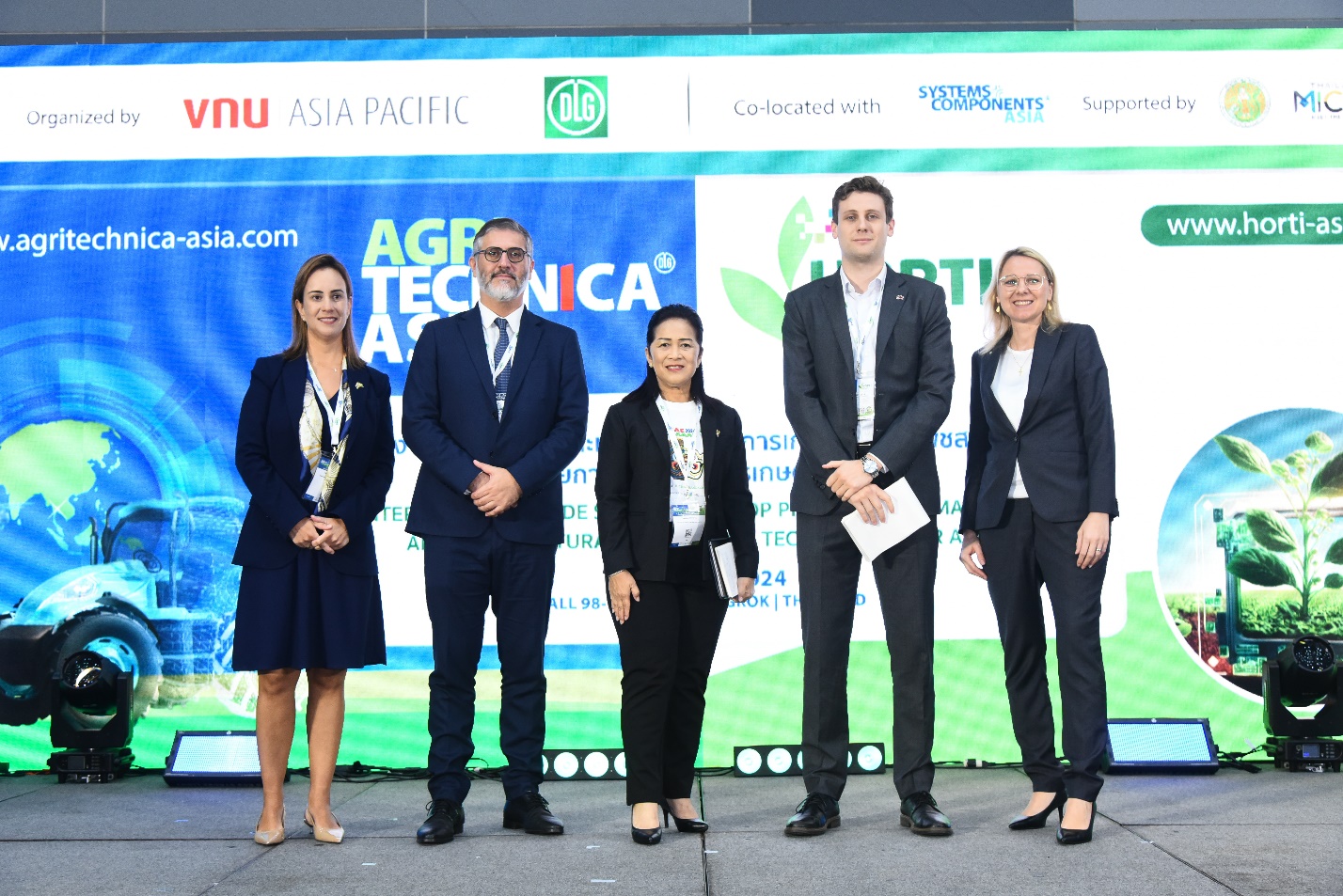CSAM features its Regional Initiative on Integrated Straw Management at Agritechnica Asia 2024
Agritechnica Asia 2024 trade fair and exhibition was held in Bangkok from 22 to 24 May 2024, organized by the German Agricultural Society (DLG), and co-hosted by the Ministry of Agriculture and Cooperatives of Thailand, bringing an urgent call to address the issues facing the agriculture industry and the world at large, such as climate change, pollution from agricultural burning, and food shortages.

As part of the event’s vision to be a platform for solutions, fostering a collaborative effort to drive sustainable practices and innovation, on 23 May a session on “Reduction of Air Pollution Through Avoidance of Burning in Agriculture” was held alongside the Agritechnica exhibition by DLG and other members of the Friends of Thai Agriculture (FTA/Group of International Agricultural Counsellors), featuring CSAM among the panelists moderated by the Agricultural Counsellor of the Embassy of Brazil in Thailand.
As stubble burning is among the major causes of particulate matter air pollution in Thailand, causing health issues and hampering the tourist industry in addition to affecting the fertility of the soil and creating adverse environmental impacts, the panel presented some agricultural mechanization-based solutions being implemented at the national, subregional, and regional level.
The Thai Society of Agricultural Engineering mentioned campaigns carried out among Thai farmers to encourage them to refrain from farm burning and adopt more sustainable farming practices, while the German Development Cooperation (GIZ), presented its project on “Piloting Sustainable Uses of Rice Straw” in ASEAN.
CSAM presented its Regional Initiative on Integrated Straw Management, based on a circular model for straw utilization which began being implemented since 2018 in pilot sites in China and Viet Nam, later being expanded with more pilot sites in Cambodia, Indonesia and Nepal. The initiative aims at sensitizing stakeholders about the issue and highlighting economic benefits of sustainable and integrated straw residue management to farmers, and help incentivize adoption of sustainable mechanization solutions also through adaptation of machinery and equipment to match local needs. The experience of the pilots was also used to develop a series of Policy Briefs on “Reducing the Need to Burn: How Applying Sustainable Agricultural Mechanization Can Improve Air Quality” for policymakers in participating countries and subregions. Discussions for the establishment of a new pilot site in Thailand are ongoing with the Department of Agriculture.

All panelists agreed on the strong potential and current role that mechanization solutions have for addressing the issue of air pollution deriving from straw burning. The panel was also covered in Thai media at https://www.nationthailand.com/sustainability/net-zero/40038272
Agritechnica Asia 2024 also hosted a session of the Technical Working Group on Combine Harvesters of the Asian and Pacific Network for Testing of Agricultural Machinery (ANTAM), a CSAM initiative aiming at the development of harmonized testing codes for agricultural machinery in the region. ANTAM is also working to develop a mutual recognition system for the testing of agricultural machinery among participating countries, which was discussed during another Agritechnica session on ‘Advancing Agritech and Localization Prospects in Philippines Agriculture' convened by the Philippines' Department of Agriculture with support from the German Federal Ministry of Food and Agriculture.

